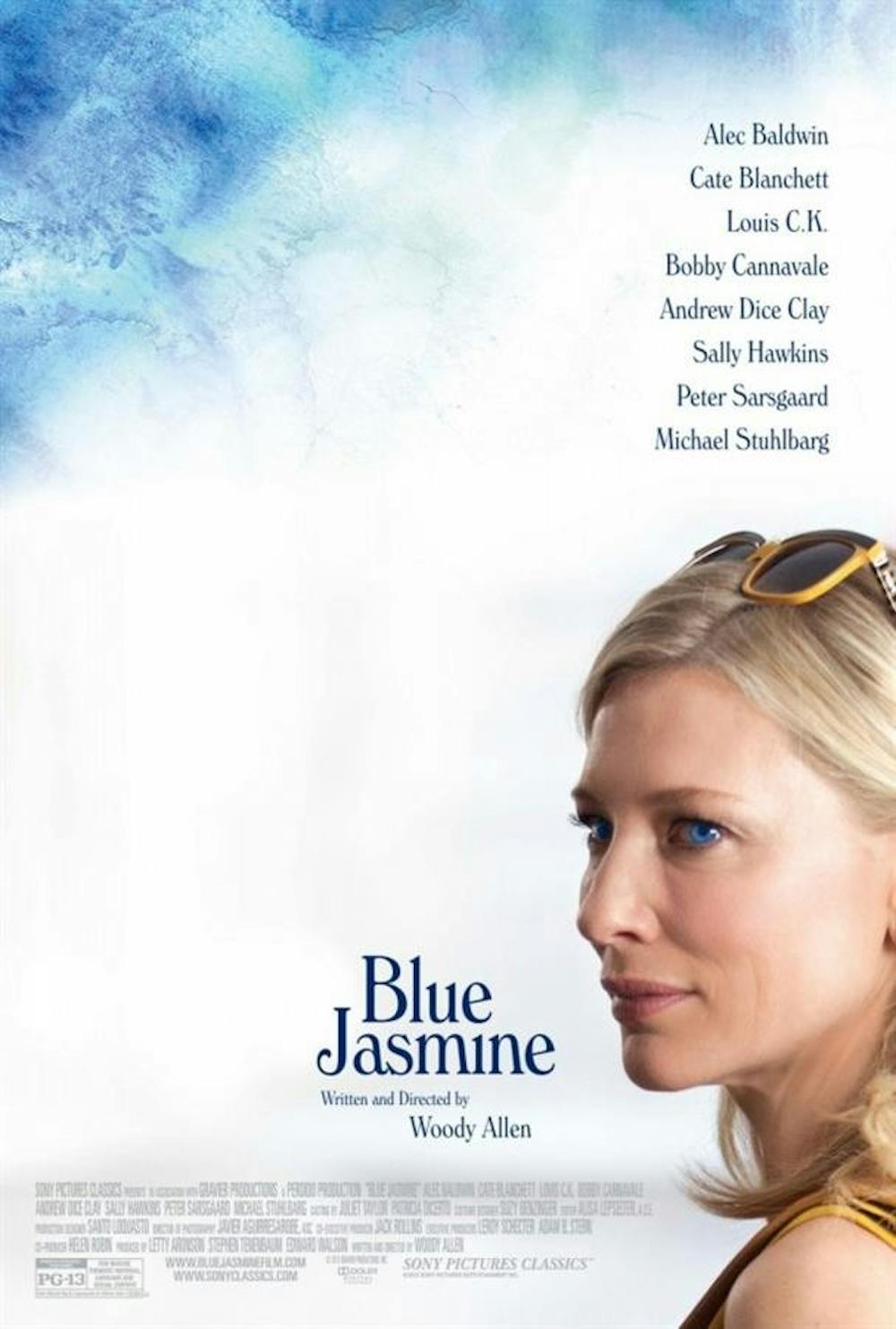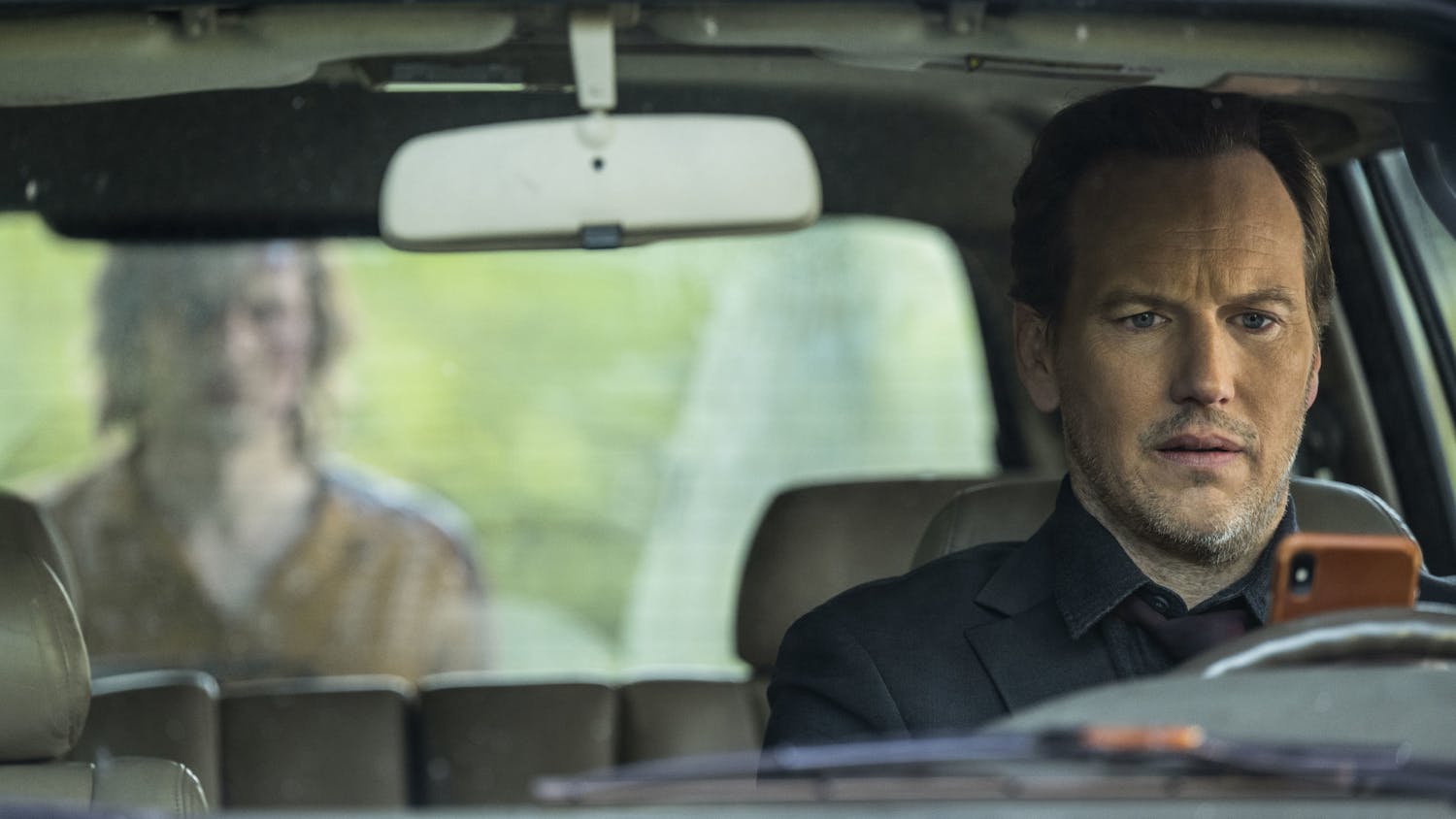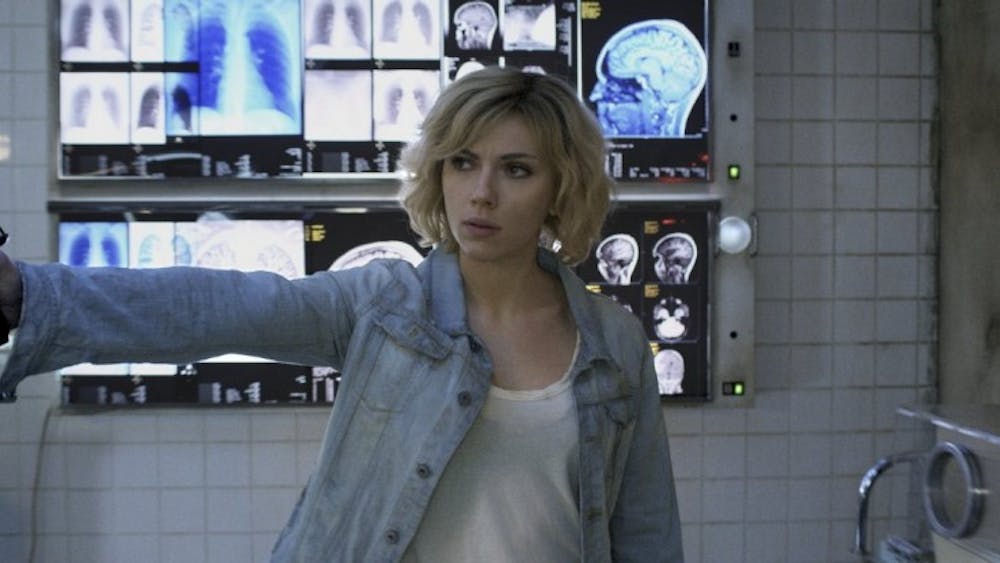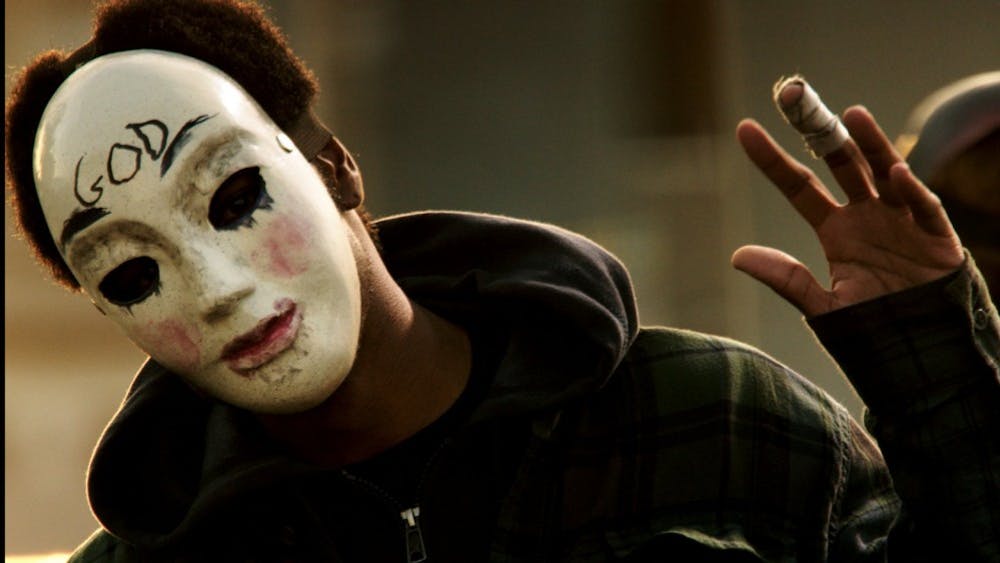There’s a violent, emotional core to Woody Allen’s “Blue Jasmine.” Her name is Jasmine Francis, a Park Avenue socialite whose life collapses when her husband is incarcerated following his involvement in a Bernie Madoff-esque money scheme.
Jasmine is portrayed — embodied, really — by Cate Blanchett, an Oscar winner who might be due for a second trophy come March.
The film opens with Jasmine on an airplane prattling to a quiet old woman. As Jasmine drones on, we become aware of exactly what kind of woman she is, or at least used to be.
But Allen’s script and Blanchett’s performance never delve into parody or snark. No, the seasoned pair are much too smart for that.
Blanchett plays Jasmine like an open nerve with no clue she’s hemorrhaging onto every person she comes into contact with. It’s exhilarating to watch her swig Stoli martinis and wave her engagement ring around on her manicured hand until the government takes it away.
The supporting cast is equally dynamic. Alec Baldwin is perfectly cast as Jasmine’s womanizing husband, and Jasmine’s middle class sister is played by Sally Hawkins, who continues her streak of matching subtle comedy with darkly dramatic chops.
But this is Woody Allen’s success as a filmmaker. No one can play a cast like Allen can. In the form of Robert Altman or Steven Soderbergh, Allen never underwrites a character or allows one to be simply a catalyst for the leading players. Everyone has a role to play, and Allen has written all the roles phenomenally.
As the plot takes its course, Jasmine’s psyche takes a turn. Or maybe it already had.
This is more of the clever madness that is Blanchett’s work. It would be unfair to catalog Jasmine’s mental state as a twist, given the fact that it’s so meticulously interwoven throughout the narrative.
Nothing ever feels sudden, or like the rug is being pulled out from underneath us. The scenes transition seamlessly but can turn on a dime. That’s the sign of a great director.
Whenever Allen directs a film that’s hailed as a “return to form,” it’s easy to forget that most of his work is better than a majority of what modern filmmakers are bringing to the table.
Is “Blue Jasmine” his best work in years? Yes. Is that to say Allen ever stopped producing some of the most calculated and invigorating work you’ll see on screen? Absolutely not.
Blue Jasmine

Get stories like this in your inbox
Subscribe




